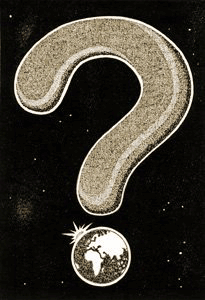
Or to put it another way: Would you want to keep it secret?
As more of us contract the wildly contagious disease officially known as COVID-19, this thorny question presses in. You may not know anyone yet who has it. I don"t. Or, more likely, I probably do, it"s just that those people haven"t been identified to me.
Whether or not we feel our own health directly affected yet, all of us watch the growing infection count and we"ve all heard of famous people who"ve caught the virus. Three weeks ago — which in virus time feels like three centuries — Tom Hanks and Rita Wilson were the first of the famous to say so. Now the list of coronavirus celebrities is long: Boris Johnson, John Prine, Prince Charles, Idris Elba, Sophie Gregoire Trudeau, to name a few. There"s another shorter, but significant, list of those who have died.
But even as COVID-19 seems to be all around us, it also seems to come with an aura of secrecy. Workplaces may notify workers that a co-worker has contracted the virus, but they"re unlikely to say who. The media sometimes use phrases like "admitted he had the disease" or "revealed he had the disease," as if saying you have it is something to confess or hide.
There are a variety of reasons — involving the legal and personal intricacies of privacy — why an individual might prefer not to acknowledge having COVID-19, and that a workplace might not tell. But when a disease is this contagious and threatens public health, would it be better if everyone who had it simply said so?
The other day I posted the question on Facebook — If you were to get the new coronavirus would you, should you, let it be widely known? — and response flooded in. A big majority said yes. A sampling of why:
• So people can see how real this is.
• There cannot be shame in contracting a pandemic virus. It is our responsibility to look out for one another and part of that is being transparent about exposure to keep those around us safe.
• Absolutely. A lot of us will get this — I already know folks who have it or have had it — and we need to eliminate the stigma around it.
Several Facebook commenters, however, said they wouldn"t share the news, certainly not widely, if at all. One woman said she feared it would have repercussions for her job. One said she worried she"d be shunned by friends.
Another woman, making it clear that she would share it with anyone she had been in recent contact with, expressed this reservation: "The reason I wouldn"t share it more widely would have more to do with my need to heal — physically and emotionally — than it would with any matter of privacy rights."
Several years ago she had a medical emergency that leaves her more vulnerable now to the coronavirus.
"Every time a new set of people learned what I was going through, I received a new wave of very well-meaning calls, texts, emails. I was so grateful for all of it, but it also — in that moment — overwhelmed me and stressed me out because I didn"t have the energy to reply."
Those are reasonable concerns. So are the concerns that secrecy leads to stigma. I took the question to Valerie Gutmann Koch, the director of Law & Ethics at the University of Chicago"s MacLean Center for Clinical Medical Ethics.
"At the beginning of any outbreak, people are going to be more reluctant to share," Koch said. "That"s part of human nature. There is this feeling that they"re responsible for their own diagnoses, the concern that people are going to judge them and say they didn"t take adequate precautions. The more patients are diagnosed with coronavirus and test positive, the more access there is to testing, the more open individuals will probably feel about their diagnoses."
She notes that a majority of the population will be affected or have someone they love affected by this disease, and that"s likely to dissipate much of the stigma. Nevertheless, in the first phase of the outbreak many people will be hesitant to say they have it, which is why it can be useful when famous people do.
"But," Koch added, noting that some media print lists of celebrities with the disease, "there"s a weird undercurrent of: Why do we want to know this? It becomes like slowing down to see a car wreck, this weird uncomfortable interest in other people"s suffering. You have to put that up against the notion that those in the public eye should be telling the world — to make it more understandable, so more people get tested and socially distance and flatten the curve and get us out of this sooner."
And if Koch were to get it, would she say so publicly? Yes, she said, "to put a face on it."
"As a medical ethicist, part of my job is education and outreach," she said. "I don"t want to make it less scary — it"s scary — but if I can make it more understandable, I would. But that"s not everyone"s position."
As for myself, I"m pretty sure I"d let it be known, and for similar reasons. And yet it"s hard to know for sure what you"d do when you"re sick until you"re sick.
A lot more of us are going to get sick from the coronavirus, and the privacy issues go beyond the simple question I"ve asked. But it"s worth asking yourself now, while you"re healthy, what you think the best thing would be to do if you do get sick with the virus in this strange time when our private health is so connected to our public well-being.
Sign up for the daily JWR update. It's free. Just click here.
(COMMENT, BELOW)
Previously:
• 04/02/20: The pandemic, a professor and a duck named Honey: A story of life in a time of death
• 03/23/20: It's OK not to feel OK right now. But here's how to feel better
• 03/20/20: Befuddled and grieving: As nursing homes restrict visitors in the COVID-19 crisis, one woman fears she'll never see her mother again
• 02/04/20: Where do we find relief in a relentlessly jangling world?
• 12/13/19: Reject the comparisons. Embrace the complication. Be the brightness you want to see. Tips for happier holidays
• 01/21/19: Farewell, Mary Oliver, a poet whose name you may not know, but whose words you most certainly do
• 09/06/18: A breeze of hope blows in the Windy City
• 08/29/18: Another summer. Again, a gift
• 08/17/18: In search of family in a small-town graveyard
• 08/09/18: Courage, kindness two years after 12-year-old blackboy was shot in Chicago
• 07/26/18: An everyday encounter made brighter by a good question: 'Do you have a story for me?'
• 06/19/18: A Big Sister's Guide to Life: Don't chase men and other practical advice
• 06/12/18: For 13 years, 2 friends wrote letters daily. It was a love affair of poetry, separated only by death.
• 06/01/18: What would we do without our brothers?
• 05/17/18: Forget a fiddler. City woman awakens to find a goose on her roof --- and laws about removing it and her eggs
• 05/10/18: A high school senior with college dreams was paralyzed by gunfire. Two years later, he's still pushing forward
• 04/05/18: Remembering the youngest history makers
• 04/03/18: The Parable of the (Expletive Deleted) Comfort Dog
• 02/15/18: Fees, fines, loans, scams: How the poor get poorer
• 02/01/18: When Paul Simon, Daniel Day-Lewis and Elton John say 'farewell' to work they love, should we too?
• 01/25/18: At Oscars time, let's snub the snubbing
• 12/28/17: The real 2017 word of the year
• 12/20/17: The laundry-folding robots are coming
• 12/13/17: How not to waste the last days of 2017


 Contact The Editor
Contact The Editor
 Articles By This Author
Articles By This Author